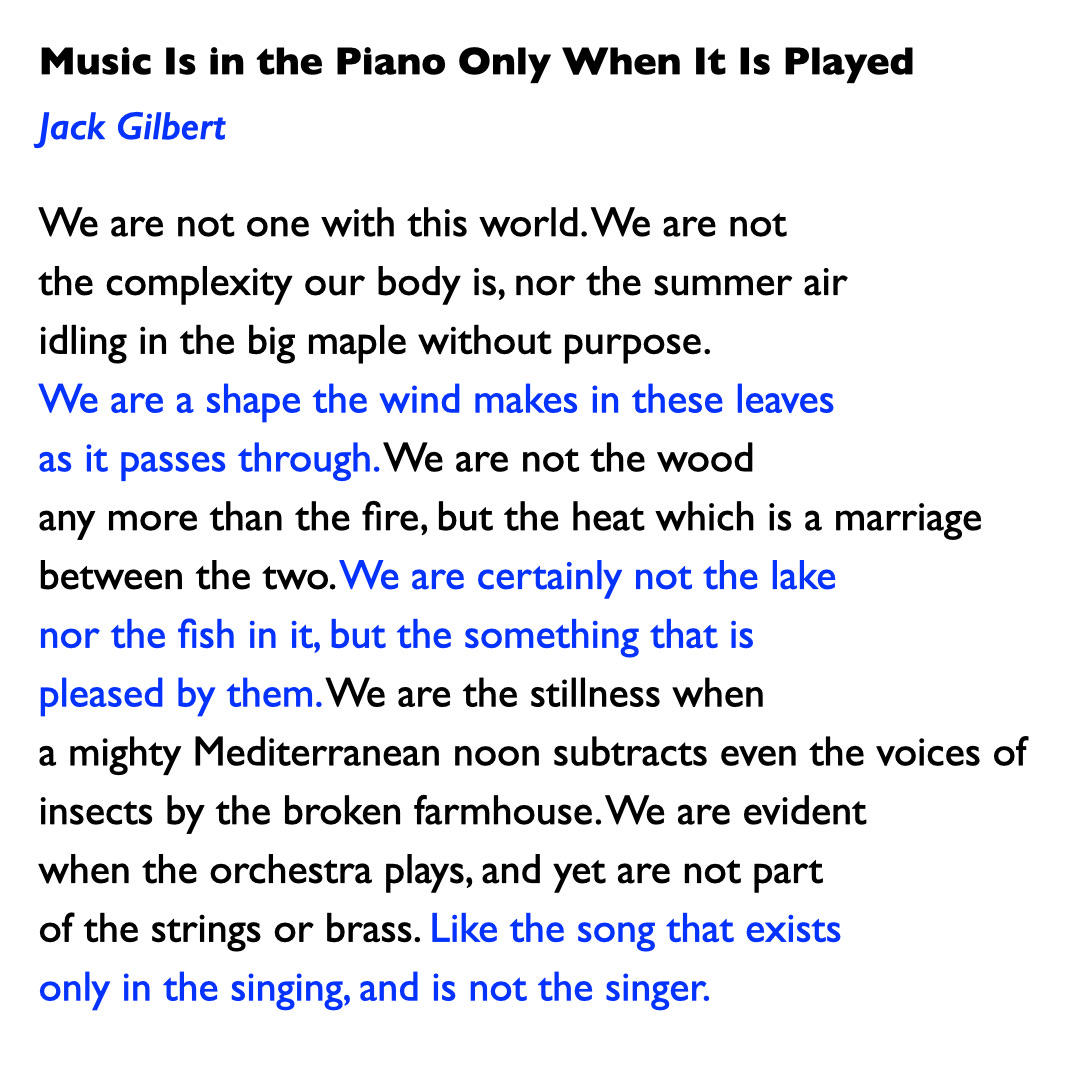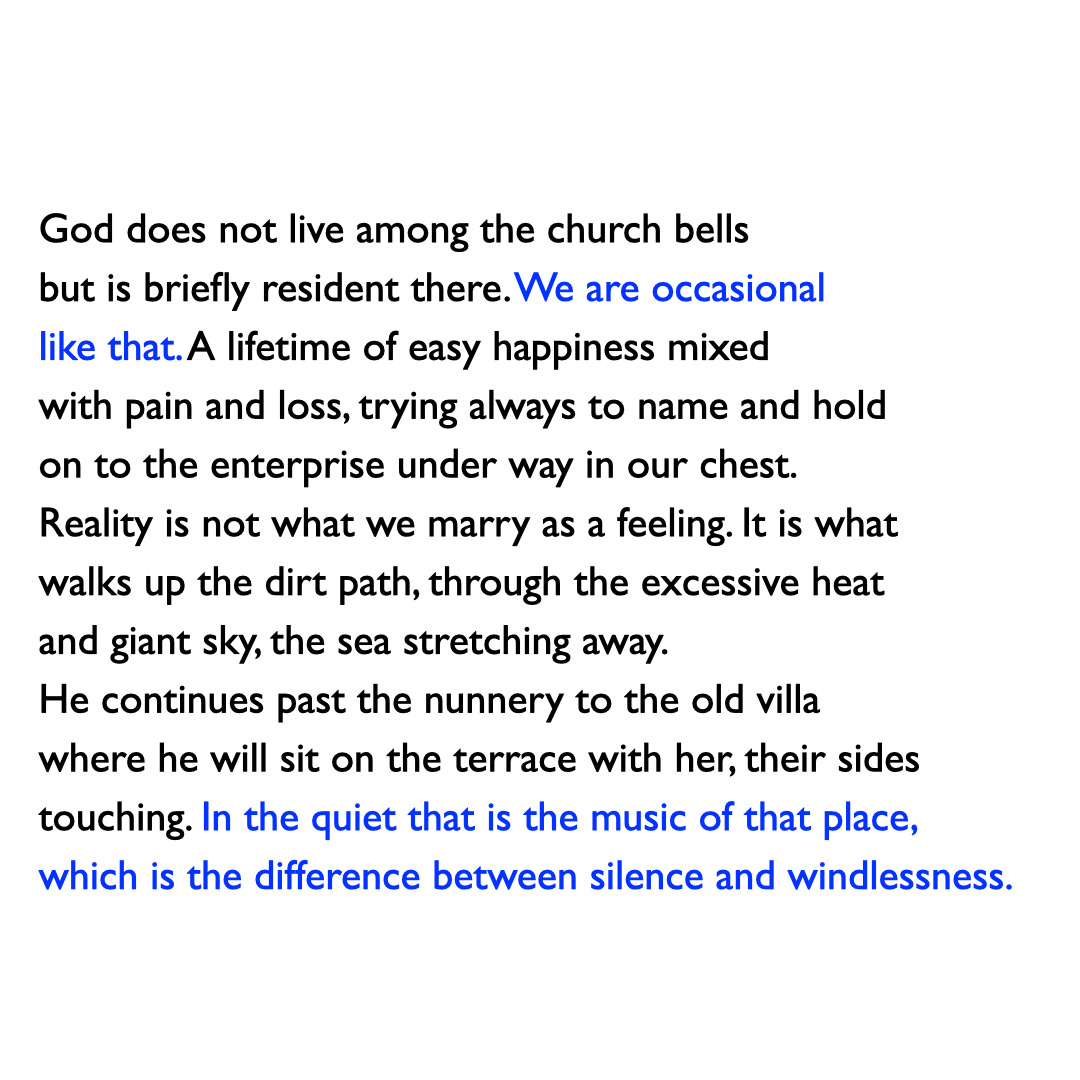…We are evident
when the orchestra plays, and yet are not part
of the strings or brass. Like the song that exists
only in the singing, and is not the singer.
Some of you know that I am a student of music. Dhrupad is my choice of poison, and the way of the ‘Chembur Dagars’ is my death by alaap.
At his gurukul in Panvel (Bombay), one day, when we were chatting over cold black tea and jeera biscuit from Maduram bakery in Chembur, I asked Chote Ustad (‘swargiya’ Ustad Zia Fariduddin Dagar) about his recent concerts. (He had just returned from a series of SPICMAY concerts in another part of the country). Pat came his reply - ‘mere programmes hamesha acche hote hain re’ (My programmes are always awesome), and then he gave me that mischievous smile, as I burst out laughing.
…We are certainly not the lake
nor the fish in it, but the something that is
pleased by them.
Ustad would always answer this question in this way. It was only many years later, after he died, that I understood that he wasn’t lying. It wasn’t arrogance, even. When Ustad sang, he became the song. His older brother (Bade Ustad - Ustad Zia Mohiuddin Dagar), in his music and persona, embodied the quiet wisdom of a sage. Ustad, on the other hand was fire and fury. His was the poetry of rebellion. But even this, he wrought with tender romance. His glissandos lit fragile fires at the end of long darknesses held together with lionbreath. He manaao’d the notes with the naughty fingers of a lover.
So, when he would tell me that his programmes were excellent, I believed him.
He was not talking about quality, or what raag he sang. He was simply talking about the fact that his audience was elsewhere, and it didn’t matter, really if they were listening. What mattered was the singing, and the song.
This music is a thing which can be caught only when it moves. Sometimes you see the place of a note only in its absence, the shadow it leaves behind, and the path it is about to take. The artist gestures to the shape of a thing.
…We are a shape the wind makes in these leaves
as it passes through.
Ustad’s voice would conjure out of the air, a lover’s plea shivering in the wind like a single stalk of grass; He’d stop you in your tracks with the impenetrability of a mountain that has found space in his ghamak. This music also taught me that there is always a third - that between the teacher and the student, between performance and affect, between the listener who is seeing the same music the singer perceives as he is making it - there is always a gap. Our perception of a thing can never be the same, no? Neither can our experience.
It is in this gap that the artist hides essence. It is this limbo that holds parampara, but also, the new. It is an uncertainty that the artist sees most clearly, and coaxes into meaning. When we sit together, and for once, when we can both see this blurry outline of God together, we call it a ‘sunrise’, or something beautiful.
…We are not the wood
any more than the fire, but the heat which is a marriage
between the two. We are certainly not the lake
nor the fish in it, but the something that is
pleased by them.
In fact, we do not even have to call it anything. Nomenclature is blasphemy, it reduces a thing to knowledge. Because we don’t know better, we sit and look at each other in foolish surmise. Sometimes our childish mortality slips out and we say, kya baat hain!
Note: Poetly loves Jack Gilbert. Here are a few of his poems shared in the past, in case you’d like to read more - Michiko Dead, Longing , I Imagine the Gods , Falling and Flying.
Also, Mani Kaul’s Dhrupad is a great place to start if you are not familiar with the music I have referenced in this post. The film circles around both Bade Ustad and Chote Ustad. Bade Ustad’s son, Ustad Bahauddin Dagar, the ‘khalifa’, the contemporary legend of this family makes a brief, and very cute appearance in the beginning. He plays the rudraveena.
No, actually it is the other way round, as Gilbert might have it, he lives in the silence hidden between the plucked strings of the veena. Listen to him, if you haven’t already, you’ll know what I mean.
—
aaaaaand
If you like what you read, do consider ‘buying me a coffee’.
(Matlab, if you can’t, that’s also fine, obviously. This is a free newsletter)
Note: Those, not in India, who’d like to support the work I do at Poetly, do write to me - poetly@pm.me. (Paypal has left the building)
Thanks for reading Poetly! Do subscribe if you are not reading this in your inbox. Cheers!




